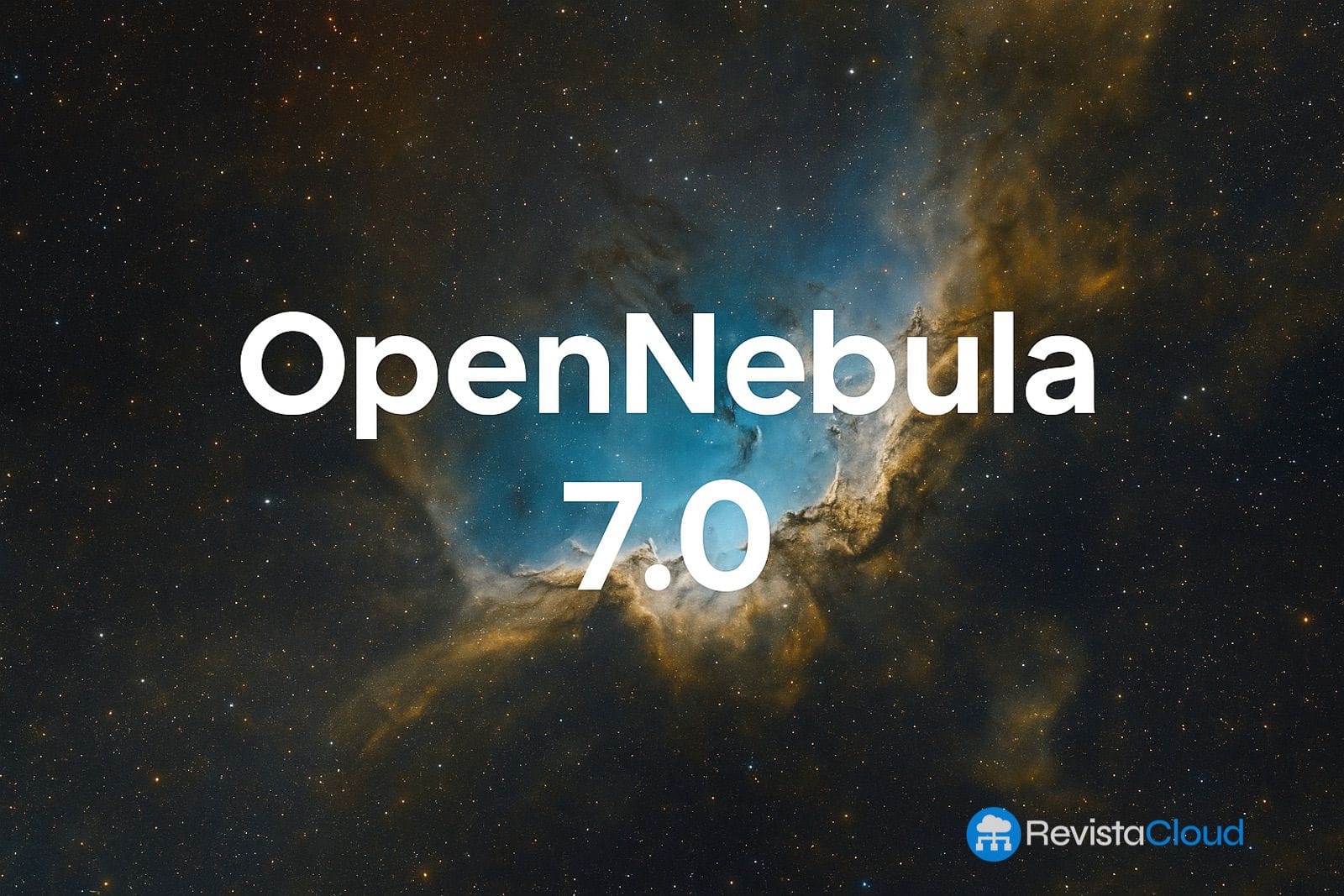OpenNebula 7.0 marks a key advancement in building a sovereign cloud infrastructure in Europe, establishing itself as one of the strongest open-source alternatives to dominant proprietary solutions. This release, supported by strategic initiatives like the IPCEI-CIS program, highlights Europe’s commitment to technological sovereignty and digital innovation.
A milestone towards sovereignty and digital innovation
OpenNebula 7.0 includes fundamental improvements to enhance flexibility, scalability, and security in hybrid and edge computing environments:
- Automated hybrid provisioning: integration with Infrastructure as Code (IaC) tools to deploy distributed clouds across multiple providers in minutes.
- AI-driven operations: new capabilities for predictive analytics, optimization, and anomaly detection, facilitating the automated management of hybrid and edge clouds.
- Scalability and portability: support for thousands of distributed clusters, enabling full portability and interoperability of workloads across providers.
- Confidential computing and AI workloads: new features for secure virtualization in multi-tenant environments and optimized management of artificial intelligence loads.
These features reinforce OpenNebula as a robust, adaptable cloud management platform focused on digital sovereignty, ideal for both businesses and public administrations.
Virt8ra: Scaling the sovereign cloud in Europe
Under the IPCEI-CIS program, the initiative Virt8ra continues to expand its reach, recently incorporating six new European providers: ADI Data Center Euskadi, Clever Cloud, CloudFerro, OVHcloud, Scaleway, and Stackscale (Aire Group). This expansion consolidates a distributed, open, and interoperable cloud ecosystem, aligned with European policies on digital autonomy.
Virt8ra is based on a free software technology stack coordinated by OpenNebula Systems. Its architecture enables orchestration and lifecycle management of services in a heterogeneous cloud-edge infrastructure, acting as a sovereign alternative to foreign platforms.
The Virt8ra testbed brings together resources from eight IPCEI-CIS partners across six EU Member States, fostering industrial innovation in strategic sectors such as energy, manufacturing, and public services.
Strategic implications for Europe’s digital future
The combination of the technological leap of OpenNebula 7.0 and the structural expansion of Virt8ra represents a crucial step in Europe’s path towards digital sovereignty. These initiatives not only reduce reliance on external providers but also strengthen cybersecurity and ensure compliance with regulations like the GDPR.
With increasing support for the IPCEI-CIS program and the incorporation of new players into the Virt8ra ecosystem, Europe is positioning itself to lead a resilient, competitive digital infrastructure aligned with its regulatory and economic values.
More information
These resources provide a detailed view of the OpenNebula roadmap, the architecture of Virt8ra, and the European strategy for an interoperable and sovereign cloud.

